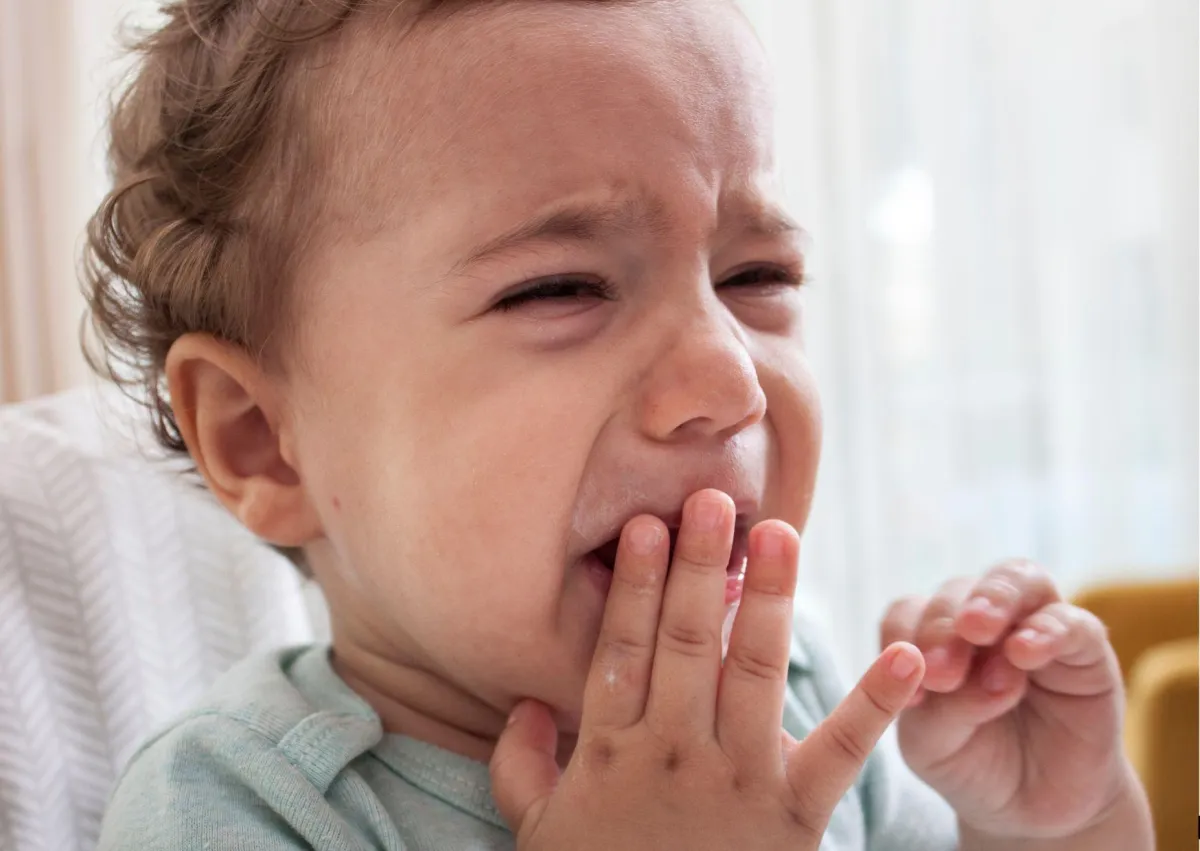
Is Teething Disrupting My Baby's Sleep?

Is Teething Disrupting My Baby’s Sleep at Night?
Teething is a common developmental milestone that can significantly impact a baby’s sleep patterns. Understanding the relationship between teething and sleep disruptions can help parents manage this challenging phase more effectively. Here’s an evidence-based look at how teething affects sleep and what you can do to help your baby.
The Impact of Teething on Sleep
Research indicates that teething can, in fact, disrupt a baby’s sleep. A study published in the journal Pediatrics found that over 80% of infants and toddlers experience sleep disturbances during teething. These disturbances are primarily due to the discomfort and pain associated with the eruption of new teeth.
Common Symptoms of Teething
Teething symptoms can vary widely among babies, but common signs include:
Increased drooling
Chewing on objects
Irritability and fussiness
Swollen, tender gums
Slight fever
These symptoms can make it difficult for babies to settle down and stay asleep. According to a study involving 125 sets of parents, wakefulness was one of the most frequently reported issues during teething, affecting sleep patterns significantly.
Evidence-Based Insights
A comprehensive study from Brazil highlighted that symptoms like irritability, increased salivation, and sleep disturbances are most intense just before and during the eruption of a new tooth. Interestingly, the study found that these symptoms are typically present only the day before and the day after the tooth erupts, suggesting that the most severe discomfort is relatively short-lived.

Managing Sleep Disruptions
While teething is a natural process, there are several strategies parents can use to minimize sleep disruptions:
Maintain a Consistent Routine: Keeping a regular bedtime and nap routine can provide comfort and predictability for your baby. If your baby was sleeping well before teething pain, you want to maintain your baby's usual schedule, even while teething. This may prevent your baby's sleep from continuing to suffer after teething discomfort subsides due to new habits that were formed. For a healthy bedtime routine that helps your baby wind down and prepare for a long night of sleep, read this article: "What is a Good Bedtime Routine for Babies?"
Create a Comfortable Sleep Environment: Ensure your baby’s sleep environment is conducive to sleeping. This includes a dark, quiet room with a comfortable temperature. White noise machines can help mask household noises that might wake your baby.
Use Teething Aids: Refrigerated or frozen teething toys, frozen washcloths, and other teething aids can provide relief. The American Academy of Pediatrics recommends using these tools to soothe sore gums. You can also use your fingers (after washing your hands thoroughly) to massage your baby's gums and provide relief.
Pain Relief: If your baby is particularly uncomfortable, consult your pediatrician about appropriate pain relief options. Over-the-counter medications like acetaminophen or ibuprofen can be used, but always consult your pediatrician before using medication for your baby. Soothing gum ointments can also be used, but the natural ones are safer than the medicated gels. Hyland’s Naturals and Mommy’s Bliss make natural soothing gels for babies as young as 2 months old. In contrast, medicated, numbing gum gels typically contain benzocaine, which the FDA has found to cause harmful side effects in babies.
Continued Sleep Disruptions?
Because teething pain is normally short-lived, ongoing sleep disruptions are often caused by a different issue. If you implement these teething relief tips and your baby is still waking up during the night or taking inconsistent naps, seek help for your baby to sleep independently throughout the night and for naps: Hire a baby sleep specialist or utilize an online baby sleep course. Professionals can help you discover the cause of your baby’s sleep disruption and can guide you to 11-12-hour nights of independent sleep for your infant. If you have ongoing concerns about your baby’s teething symptoms, consult with your pediatrician for personalized advice and support.
